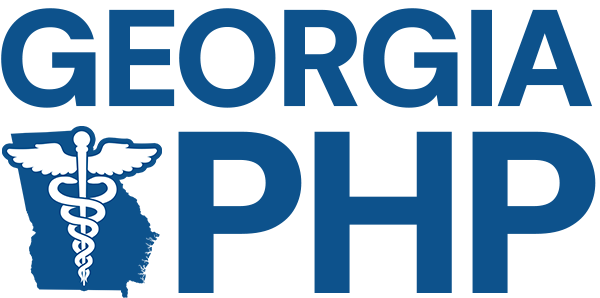A Closer Look
GAPHP provides confidential assistance to healthcare professionals with conditions that may negatively impact practice performance. Referrals to GAPHP protect the well-being of healthcare professionals and the patients they serve.
One of the reasons Professional Health Programs (PHPs) were developed was to provide confidentiality for healthcare professionals with stigmatized health conditions. Healthcare professionals are more likely to seek assistance if they believe their information will be kept confidential. Under these circumstances, they can participate in the PHP without involvement of state medical boards. Strong confidentiality protections encourage early intervention in the illness process before impairment occurs and when the prognosis for full recovery is most favorable. Confidential participation in GAPHP begins at the intake process, following completion of a thorough informed consent procedure.
Existing state and federal laws allow GAPHP to protect the identity of participants and referent(s) when they follow GAPHP recommendations and do not pose a risk to themselves or their patients. In most cases, GAPHP participants’ identities, circumstances, and participation remain confidential and do not involve disclosure to the applicable state regulatory entity. Most GAPHP participants known to their regulator were involved prior to referral to GAPHP. A small minority forfeit program confidentiality when risk of unsafe practice or program non-compliance require GAPHP to notify the regulatory entity.
It is important for all making application to understand the contractual relationship between the Georgia PHP and the Georgia Composite Medical Board, and the Georgia State Board of Veterinary Medicine. Participation in our program is voluntary. If you or your family or staff member joins the PHP, you or they are free to choose not to comply with our recommendations and discontinue our service at any time and work directly with the Georgia Composite Medical Board or the Georgia State Board of Veterinary Medicine.Please note that the Georgia Composite Medical Board and the Georgia State Board of Veterinary Medicine require us—for public safety—to disclose the name of any healthcare or veterinary practitioners who have decided to discontinue their participation with Georgia PHP as a result of not complying with indicated recommendations, and consent to that disclosure is a prerequisite to participation in our program. Furthermore, under OCGA 43-34-8(a)(13)(B), the Board may obtain your treatment records at any time.To the fullest extent permitted by applicable law, you do hereby completely and unconditionally release and discharge the Georgia PHP, its employees, officers, directors, members, shareholders, affiliates, sponsoring or referring entities, consultants, successors and assigns, of and from any and all claims, demands, actions or proceedings of any type or nature, civil, administrative or otherwise, whether sounding in warranty, contract, tort or otherwise, which could be brought by, through or under you, related in any manner to the services provided to youProvisions
Georgia state statutes and rules provide for a confidential professional health program and set out its definitions and requirements. Department 360 Rules of Georgia Composite Medical Board and Chapter 360-11-.05 Georgia Professional Health Program/Confidentiality are the most relevant statutes. GAPHP is a Part 2 program under 42 CFR Part 2 – Confidentiality of Substance Use Disorder Patient Records. Together these laws and regulations provide exceptional privacy protection and reassurance that participant records are safe from subpoena or disclosure in legal proceedings and will not be released without the participant’s consent.
With limited exception, GAPHP does not release its records to participants or third parties. This policy protects the identities of referral sources and prevents participants from being compelled to produce the GAPHP record during discovery in a legal proceeding.
The Georgia Composite Medical Board, as well as the State Board of Veterinary Medicine, also requires that GAPHP comply with HIPAA regulations set forth in the Privacy and Security Rules, in addition to the legal protections noted above.
Limitations
GAPHP’s commitment to confidentiality and privacy is unwavering. That said, there are important practical and legal limitations to confidentiality that should be considered.
GAPHP participants may be asked to provide consent for GAPHP to communicate with evaluation and treatment providers, key supports, or concerned others as a condition of program participation. Such communications are critical for GAPHP to effectively carry out its mission and support the health and advocacy needs of program participants. GAPHP makes every effort to limit disclosures to their intended purpose. For example, communications with health care providers would likely include protected health information, while verification of health status and safety to practice for employment or credentialing purposes would not.
GAPHP has a statutory obligation to notify the applicable regulatory entity when a participant is unable to practice with reasonable skill or safety or fails to comply with program requirements (Chapter 360-3 Investigations and Discipline). Such notifications are uncommon. In such cases, GAPHP provides ample opportunity for remedy prior to notifying the regulator. Following notification, GAPHP must release program records to the regulator if requested.
Danger to self or others, abuse of a child or vulnerable adult, and medical emergencies are other examples in which GAPHP may have a legal reporting obligation that supersedes a participant’s confidentiality protections.
GAPHP understands how important it is for prospective and current participants to have confidence that their health information will remain private and protected, and that seeking help will not harm them personally or professionally. Please contact us if you have any questions or concerns about program confidentiality.
